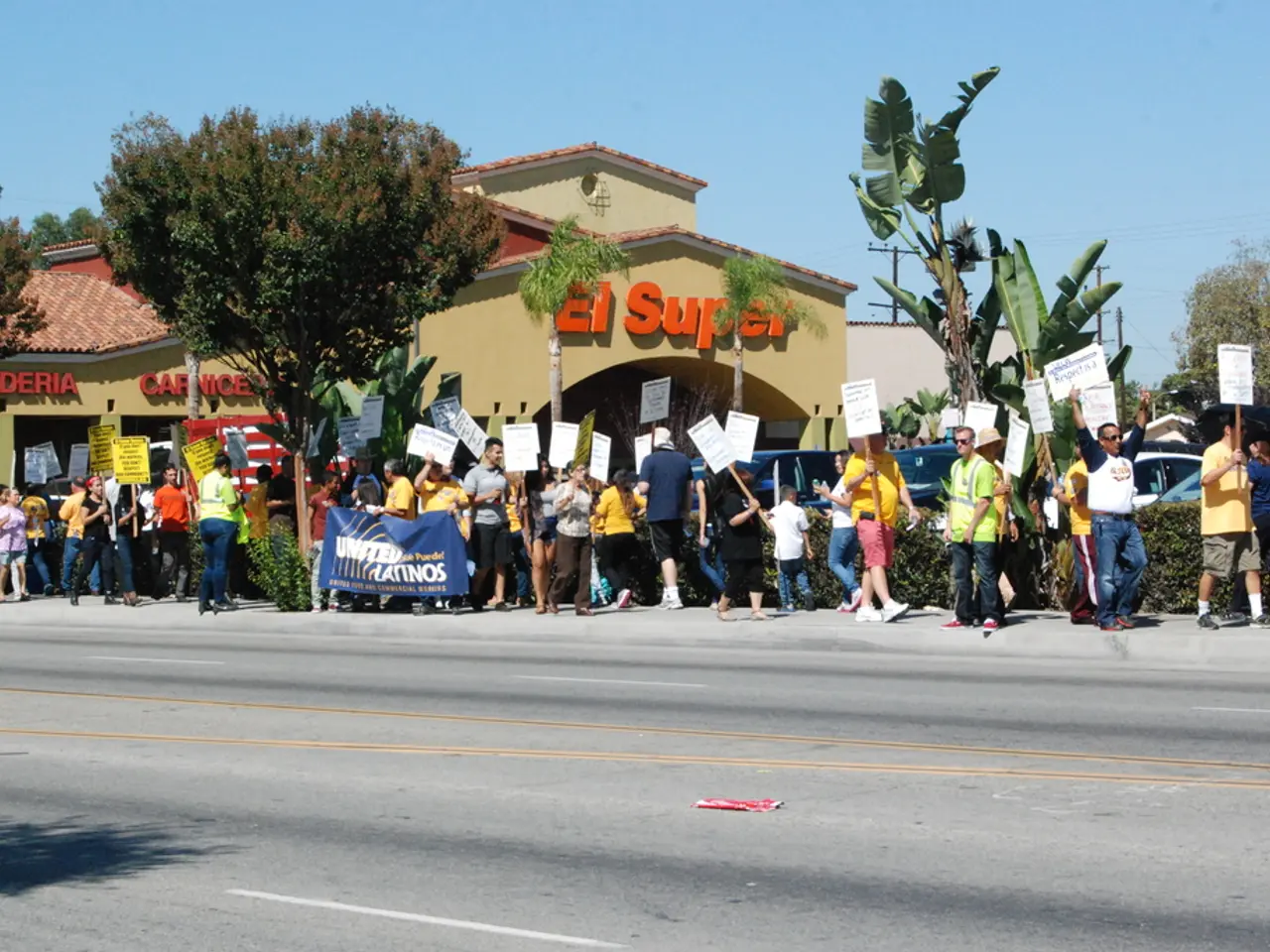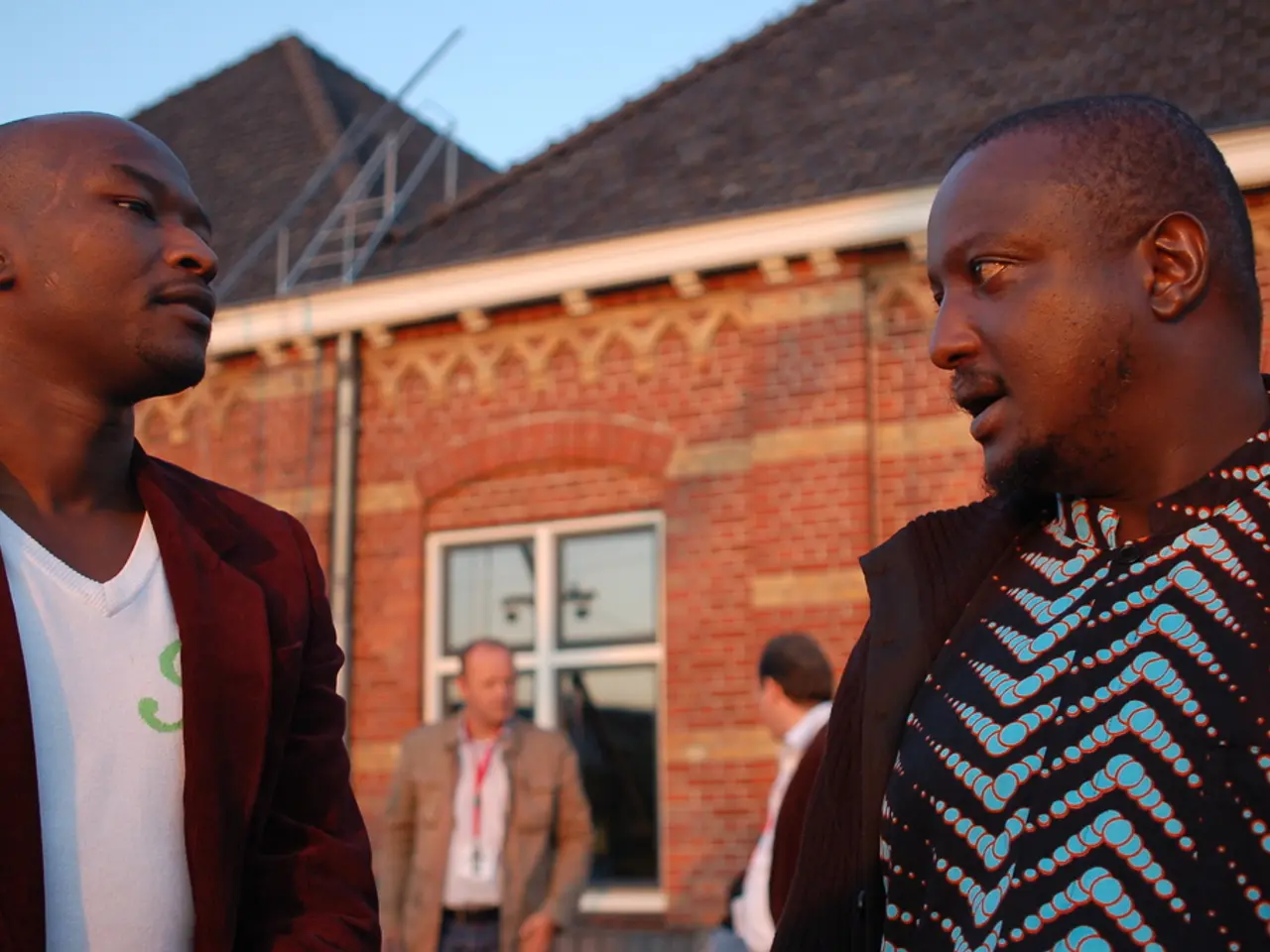Post-Trump Election Social Media Splintering: Expert Insight on Potential Hazards
In the digital age, the future of online discourse hangs in the balance, with the critical importance of upholding democratic values becoming increasingly evident. The delicate balance between promoting open dialogue and safeguarding users from harm remains a key challenge for social media companies.
The evolving relationship between tech giants and governments could reshape the digital landscape, setting the stage for potential conflicts over free speech and regulatory oversight. Fragmentation of social media platforms along political lines, a phenomenon observed post-Trump election, could lead to significant risks for social cohesion and democracy.
This potential fragmentation could lead to an "atomisation" of social media users, creating distinct silos based on differing political ideologies. This fragmentation encourages users to categorize themselves strongly by partisan identity, deepening polarization as media consumption becomes more ideologically sorted, reinforcing social and political divides.
Enhanced digital harassment tactics cause physical and psychological risks, deterring public participation in discourse. Tactics like doxxing and swatting, amplified by AI and social media algorithms, disproportionately target public figures and politically active individuals, creating safety risks and discouraging civic engagement, thereby undermining democratic functions.
The election security and trust in democratic institutions suffer from fragmented oversight and political interference. Social media firms are under pressure to improve content policies and demonstrate independence and fairness, but clear solutions remain a work in progress as evolving technologies complicate oversight.
Recent decisions made by industry leaders have drawn criticism. For instance, Meta's rationale for removing third-party fact-checkers was to streamline content moderation processes and prioritize enforcement against illegal and high-severity violations. Critics argue that Meta could have maintained third-party fact-checking while implementing community notes to address concerns from various stakeholders. Meta defends its decision, stating it promotes freedom of speech on the platform.
The close ties between social media executives like Zuckerberg and Musk with the Trump administration have raised questions about the platforms' independence. Elon Musk, CEO of X, publicly supported Donald Trump during the campaign and subsequently assumed a federal advisory role.
Melissa Ingle, who previously worked in political disinformation at Twitter, expressed concerns about the potential polarization of established and newer social media platforms like Bluesky and Mastodon. Nina Jankowicz, a former head of a disinformation board in the US Department of Homeland Security, described Meta's move as a "performative choice" to demonstrate alignment with the new administration.
The implications of the consolidation of major US social media platforms under Trump-aligned leadership on the democratic fabric of the United States remain a subject of debate. Some argue that this consolidation could erode independent voices in the digital space.
In the face of these challenges, social media companies must navigate complex issues of political interference, content moderation, and user safety while upholding democratic values. The decisions made by industry leaders and policymakers today will shape the contours of digital engagement for years to come.
[1] Bail, C., & Bail, K. (2018). The spread of political false news online. Harvard Kennedy School Misinformation Review, 1(1).
[2] Howard, P. N., & Kaid, C. (2018). The digital divide and political polarization in America. Journalism & Mass Communication Quarterly, 95(2), 339-353.
[3] Milani, F., & Hogan, M. (2018). Social media, political polarization, and the 2016 election: A content analysis of Twitter data. Journalism & Mass Communication Quarterly, 95(2), 354-370.
- The delicate balance between promoting freedom of speech, democratic values, and safeguarding users from harm is a significant challenge in the digital age, especially for social media companies dealing with general news, policy-and-legislation, politics, and entertainment.
- The consolidation of major social media platforms under Trump-aligned leadership raises concerns about the erosion of independent voices in the digital space, potentially deepening political polarization and impacting social cohesion in the long run.
- Recent debates over content policies, such as Meta's removal of third-party fact-checkers, highlight the need for tech giants to address concerns surrounding news, political interference, and user safety while maintaining democratic values in the digital age.








